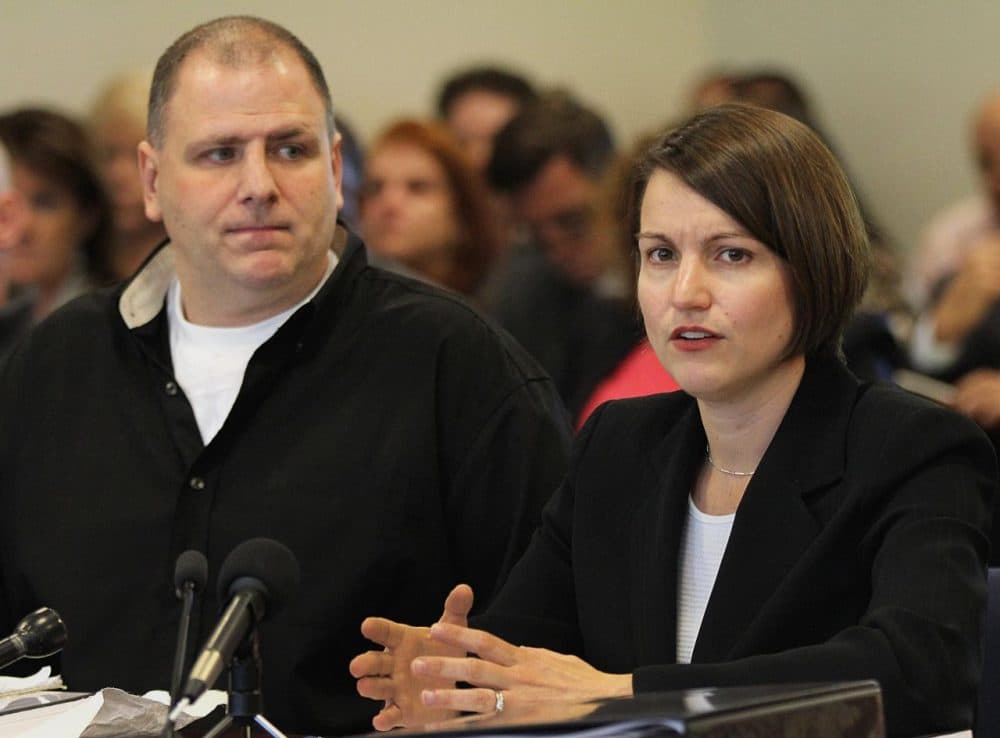Advertisement
Here's A Look Inside The Often Secretive World Of Parole Boards
Resume
Most of us are pretty familiar with the principles that guide the U.S. criminal justice system. Defendants are considered innocent unless they're proven guilty. The jury gives a verdict solely based on evidence submitted in court. Then a judge hands down a sentence.
But when parole boards are considering whether to release convicted criminals before their sentence is complete, the standards are much less clearly defined.
In a newly published report for The Marshall Project and The Washington Post, Beth Schwartzapfel writes, "hearsay, rumor and instinct are all fair game."
Guests
Beth Schwartzapfel, staff writer for The Marshall Project. She tweets @schwartzapfel.
Leslie Walker, executive director at Prisoners' Legal Services of Massachusetts, which tweets @PLSMA.
More
The Marshall Project: Life Without Parole
- "America's prisons hold tens of thousands of people like Rodriguez — people primarily confined not by the verdicts of a judge or a jury but by the inaction of a parole board. Michigan is one of 26 states where parole boards are vested with almost unlimited power to decide who gets out of prison when, and why."
Boston Magazine: Would You Let This Man Go Free?
- "As a teenager, Greg Diatchenko was convicted of murder and given the mandatory sentence: life without parole. Now science, and the courts, could give him another chance."
This segment aired on July 13, 2015.